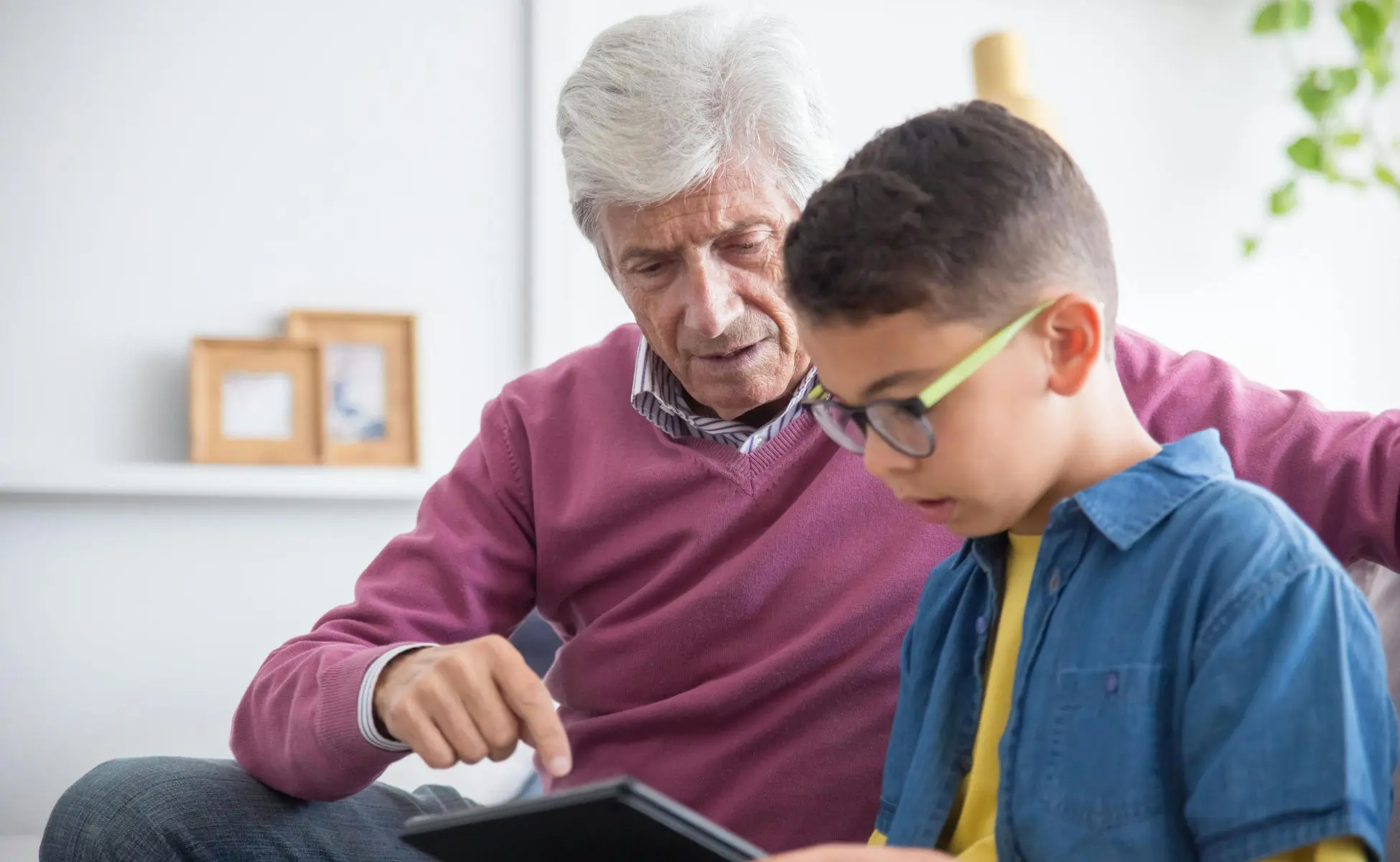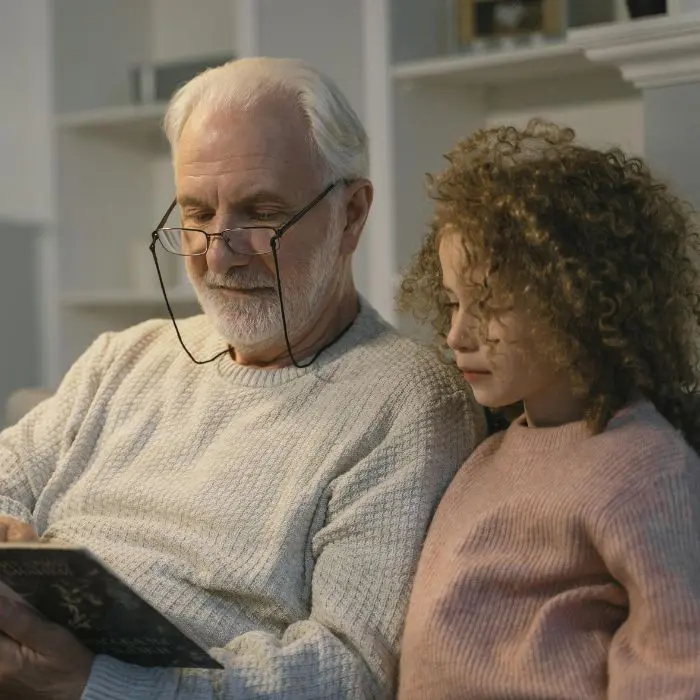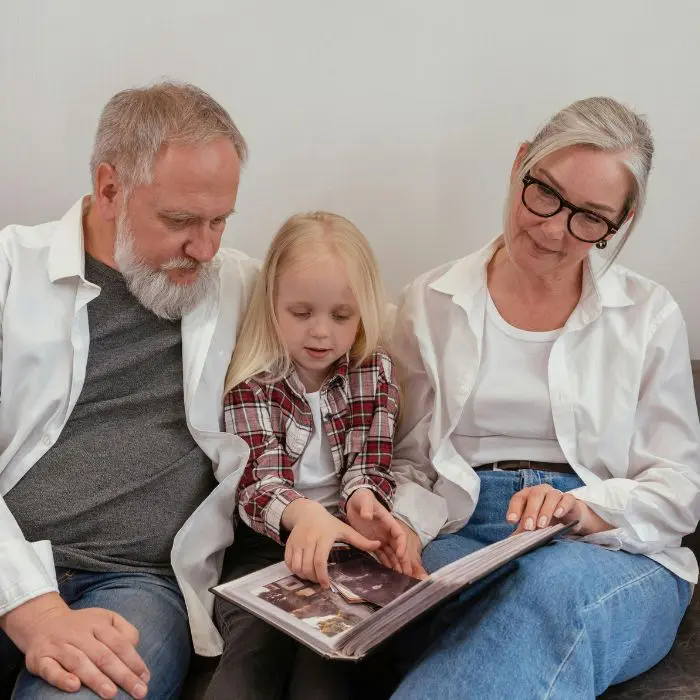Supporting Children Bereaved of Both Parents
Healthcare Specialist, Sophie Bishop shares how you can support bereaved children after both parents have died.

A child who has recently lost both parents faces an unprecedented amount of grief. As a fairly unique situation, this can be tricky to manage as a carer, family member, or professional. But those around the bereaved child need to know how to navigate the situation, helping them through their loss.
To help you gain confidence and provide the care they need, start by understanding their challenges.
Understanding Different Responses
The trauma of losing both parents can present itself in a variety of ways, both immediately after the loss and throughout the child’s life. Being able to identify trauma responses is a great start to understanding how you can help a child in your care.
For example, some children might display symptoms of post-traumatic stress disorder (PTSD), including having nightmares, experiencing insomnia, struggling to focus, and bed-wetting.
You should also look out for less common trauma responses that can be equally debilitating, like fawning (in which children ignore their own needs to please those around them) and conduct disorders (where the child struggles to connect with others, follow the rules, or behave in a socially acceptable manner).
Trauma can also display itself in mental health issues, like anxiety, depression, and obsessive-compulsive disorder. To speak to someone about mental health, consider reaching out to Mind, Young Minds, or call Samaritans for 24/7 support on 116 123.
Unless you’re a professional, you must seek medical support for a child showing signs of a trauma response. Talking therapy, cognitive-behavioural therapy (CBT), and medication can reduce the impact of these responses and help children process their grief in a healthier way.

Different Aged Children Will Grieve Differently
When supporting a child bereaved of a parent or both parents, consider their age. Bereaved children are likely to respond differently to a bereavement depending on how old they are, and it can also affect the sort of support they need and how you talk about death.
To learn more, here are some of the similarities and differences between age groups.
Babies and Toddlers
When babies and very young children experience the death of their parents, though they don’t understand death, they’ll grieve the absence of their parents and can become distressed. They may become clingy, cry more, and struggle to eat and sleep.
You can help babies and young children by providing plenty of comfort and maintaining a routine they’re familiar with. In these cases, creating a sense of safety is crucial.
2-5 Year Olds
Slightly older children have an understanding of death but can be confused about its permanence. It’s normal for 2-5-year-olds to ask a lot of questions, and some children of this age might have less of an emotional reaction to the death of their parents.
It’s important to be honest with children of this age to avoid confusing them. Use the word ‘death’ rather than ‘lost’ or ‘gone away’ to make it clear their parents aren’t coming back – as difficult as that may be – and be patient when answering the same questions repeatedly.
You might also see a regression in behaviours, such as difficulty sleeping through the night or using the toilet. Patience and understanding can help with these problems, as can professional support.
More advice for supporting bereaved children of both parents
6-12 Year Olds
Children of primary school age will have a clearer understanding of death the older they get but can still be confused. Again, it’s important to speak clearly, honestly, and in age-appropriate language to ensure they know what’s happened.
You might also see more guilt and responsibility in older children. This is when fawning can become very apparent, with children trying to make up for their loss and negative feelings by pleasing those around them. It’s important that they are given access to talk to a professional should they want to, which can help them grasp what has happened and navigate their emotions.
Teenagers
Adolescence is already a challenging time, making the addition of coping with bereavement especially challenging. Teenagers are likely to feel incredibly destabilised and struggle to balance their vulnerability with their desire for independence. It can also be an isolating and lonely experience, making them feel different from others their age.
The main priority here is to give teenagers a safe outlet for their emotions – including through grief counselling, if they want the support – and to give them some control over their situation.
Behavioural changes are important to be aware of so you can step in to offer extra help and support if they start to act differently. This could include lashing out, reckless behaviour, or displaying negative mental health symptoms, but could equally include being quieter, becoming withdrawn, and avoiding activity. Children and young people often learn how to grieve by watching others, so being able to express your own grief (if appropriate) in a healthy way can be beneficial for them to see.
Cultivate Safety and Routine
In terms of what to do when a parent dies, or both parents die, children need routine. Regardless of their age, try to maintain a sense of normality by continuing with their daily life as much as reasonably possible.
This can include keeping normal bedtimes and morning routines, giving them space to grieve, and being led by them as to when they feel ready to return to school. It’s important to support them throughout the process of returning to school by keeping the conversation as open as possible about their worries, fears, and concerns, whilst also helping them see the benefits. Talking to the school to find out about support available as well as discussing a reduced timetable for a while to help them adjust to their new normality.
It’s also important to remember that children of all ages can feel destabilised and unsafe after becoming bereaved of both parents. As an adult looking after them, there are a number of ways you can cultivate a sense of safety for them, including:
- Create a safe and private space for children who aren’t living at home, where they can keep their belongings and go to be alone
- Let them know it’s okay to talk
- Give them room to express their feelings without judgement
- Let them ask questions and giving honest answers
- Connect them to other support, for example, Winston’s Wish and Talk Grief
- Encourage social interaction with friends and family
You can also create safety through acts of care, like cooking them their favourite meal, buying the snacks they’re used to, or watching their favourite film together.
Bereaved Children Can Crave a Sense of Control
A child bereaved of both parents can feel like they have lost control of their life. This is particularly true for older children and teenagers.
You can help them regain stability by including them in decisions that affect them. When talking about these decisions, try to make them aware that involving them and learning about their preferences will help to shape what happens next. If their decisions change, reassure them that they will be supported through this, to help set expectations and manage any further anxiety.
You can also involve them in creating daily routines for their new normal. When they’re ready, write out a plan together that outlines key details of their day, such as what time they wake up, what they eat for breakfast, and their preferred evening activities. This may seem like a small task but having a plan they’re in charge of can help them find stability and comfort.
Creating Safe Emotional Outlets
Grieving is hard, and the death of both parents might feel almost impossible to overcome. As someone in a position of care, helping children and young people manage their emotions is one of the best ways you can support them.
We recommend trying to channel emotions into safe outlets. This can include creative therapy activities like:
- Making a grief chart and coping wheel
- Encouraging journaling (particularly for teenagers)
- Creating a memory box
- Writing unsent letters
You can also practice active listening when the child wants to talk. This means listening without interrupting and always maintaining eye contact with them. Remove distractions from the area so they have your full attention and validate their feelings by repeating what they say back to them. If they are struggling to talk, try having conversations in areas that are less confronting, such as in the car, or while doing some mindful colouring or a make & talk activity.
If the child is finding it hard to talk to you, encourage them to try talking to someone else. This could be a friend, another family member, a teacher, or a professional therapist. Winston’s Wish provides support immediately over the phone, email, or live chat on our websites. This immediate support is for anyone grieving up to the age of 25, as well as the adults supporting them.

Final Thoughts on Supporting a child Bereaved of both Parents
Supporting a child grieving for their parents is never easy, but the role you play in supporting them could help them learn to manage their grief for years to come. We hope this article has given you some tips to get started. For more advice, be sure to check out the support and resources offered by Winston’s Wish.
Where to get support when caring for children bereaved of both parents
If you need advice on supporting a child on anniversaries, birthdays and special days, we’re here to help. You can call our Helpline for free on 08088 020 021 (8am-8pm, weekdays), email us on ask@winstonswish.org or use our live chat (8am-8pm, weekdays).
For out of hours mental health support, text WW to 85258 to speak with someone from our trusted partner, Shout. For urgent support in a crisis, please call 999.

You may also like

Publications and Resources
Our specialist publications and resources to help you navigate your support when caring for children and young people bereaved of both parents.

Activities for bereaved children
Download our free activities which are designed to help grieving children and young people express their feelings and maintain memories after being bereaved of both parents.
Connect with us
Sign up to our newsletter and follow us on social media for all our latest news and advice on supporting grieving children and young people.

